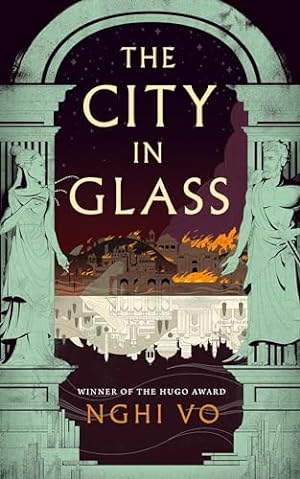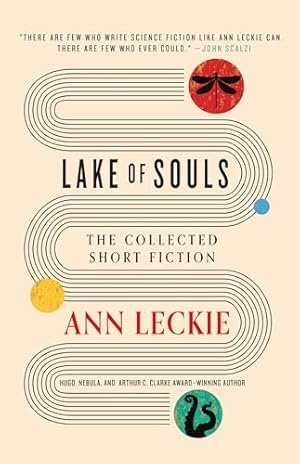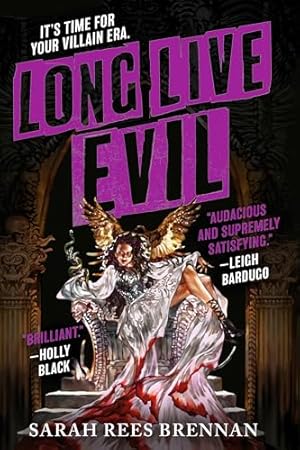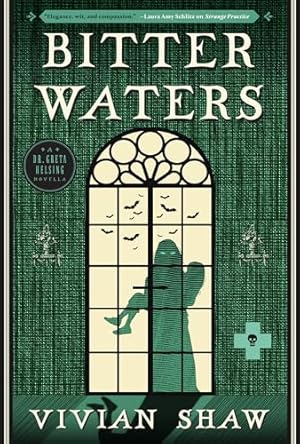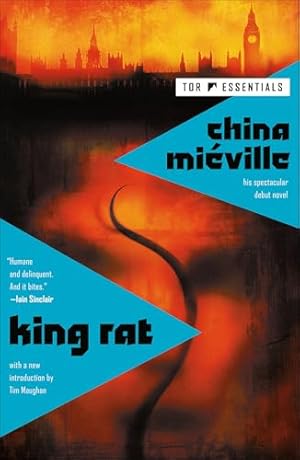Learn more
These promotions will be applied to this item:
Some promotions may be combined; others are not eligible to be combined with other offers. For details, please see the Terms & Conditions associated with these promotions.
Audiobook Price: $19.21$19.21
Save: $11.72$11.72 (61%)
Your Memberships & Subscriptions

Download the free Kindle app and start reading Kindle books instantly on your smartphone, tablet, or computer - no Kindle device required.
Read instantly on your browser with Kindle for Web.
Using your mobile phone camera - scan the code below and download the Kindle app.



 Audible sample
Audible sample Half a Crown: A Novel (Small Change, 3) Kindle Edition
In 1941 the European war ended in the Farthing Peace, a rapprochement between Britain and Nazi Germany. The balls and banquets of Britain’s upper class never faltered, while British ships ferried “undesirables” across the Channel to board the cattle cars headed east.
Peter Carmichael is commander of the Watch, Britain’s distinctly British secret police. It’s his job to warn the Prime Minister of treason, to arrest plotters, and to discover Jews. The midnight knock of a Watchman is the most dreaded sound in the realm.
Now, in 1960, a global peace conference is convening in London, where Britain, Germany, and Japan will oversee the final partition of the world. Hitler is once again on British soil. So is the long exiled Duke of Windsor—and the rising gangs of “British Power” streetfighters, who consider the Government “soft,” may be the former king’s bid to stage a coup d’état.
Amidst all this, two of the most unlikely persons in the realm will join forces to oppose the fascists: a debutante whose greatest worry until now has been where to find the right string of pearls, and the Watch Commander himself.
- LanguageEnglish
- PublisherTor Books
- Publication dateMay 1, 2024
- File size4.8 MB
Shop this series
See full series-
All 3$30.07
-
All 3$30.07
This option includes 3 books.
Customers also bought or read
- Never Say You Can't Survive: How to Get Through Hard Times by Making Up Stories
 Kindle Edition$11.99$11.99
Kindle Edition$11.99$11.99 - What Makes This Book So Great: Re-Reading the Classics of Science Fiction and Fantasy
 Kindle Edition$9.99$9.99
Kindle Edition$9.99$9.99
Customers who bought this item also bought
Editorial Reviews
From Publishers Weekly
Copyright © Reed Business Information, a division of Reed Elsevier Inc. All rights reserved.
Review
“Stunningly powerful…. A standout. Mainstream readers should be enthralled as well.”
—Publishers Weekly (Starred Review) on Farthing
“If le Carré scares you, try Jo Walton.”
—Ursula K. LeGuin on Farthing
“A literary Guernica—a top-notch thriller set in a terrified Britain that is all too willing to trade freedom for security, and which gets neither.”
—Cory Doctorow on Ha'Penny
“Haunting…. Like meticulously nested Matroyshka dolls, both Farthing and Ha’penny reveal complex arguments layered in their elegantly structured narratives.”
—Sarah Weinman, Los Angeles Times
About the Author
Excerpt. © Reprinted by permission. All rights reserved.
...
Product details
- ASIN : B004N6363A
- Publisher : Tor Books (May 1, 2024)
- Publication date : May 1, 2024
- Language : English
- File size : 4.8 MB
- Text-to-Speech : Enabled
- Screen Reader : Supported
- Enhanced typesetting : Enabled
- X-Ray : Not Enabled
- Word Wise : Enabled
- Print length : 341 pages
- Best Sellers Rank: #335,432 in Kindle Store (See Top 100 in Kindle Store)
- #822 in Alternative History
- #1,397 in Alternate History Science Fiction (Books)
- #1,580 in Historical Fantasy (Kindle Store)
- Customer Reviews:
About the author

Jo Walton comes from Wales but lives in Montreal, exclusively in the first person. My plan is to live to be ninety-nine and write a book every year.
The question people most often ask is where to start with my books. I've published fifteen novels now, three poetry collections, a short story collection and a two essay collections -- and a travel memoir thingy. My novels are all different from each other, and really, where to start depends on what you like.
My most popular book is definitely my Hugo and Nebula award winning Among Others, which is a fantasy novel about a fifteen year old girl who reads science fiction. It's written in diary form, and set in Wales in 1979 and 1980. It's a book about what happens after you've saved the world -- Mori's sister sacrified herself and Mori became disabled in a fight to defeat their evil witch mother, and they won. Now she has to go to a new school, on her own, and cope with life and the ethics of doing magic at all, while reading for escape, solace, and ways of coping with the world.
Lent is a historical fantasy about Savonarola.It's set in Florence and Hell between 1492 and 1498. If you like historical fiction like Wolf Hall, this would be a good one to start with.
Or What You Will, which came out in July 2020, is about a character who lives in a writer's head and is afraid of what's going to happen to him when she dies. It's themes are story, death, and renaissances. It's a good one if you like metafiction, or if you've read several of my other books and liked them all. When I'm writing a book I always think it's kind of weird, and this one really is.
My Real Children won the Tiptree award in 2015. It's an alternate history -- well actually two diverging realities. It's about a woman with dementia in a nursing home who remembers two different versions of her whole life, and the book covers her whole life twice from the split in 1949 to 2015. This is a book many people enjoy, and it's the one I recommend as a starting point if you don't usually read SF or fantasy. If you want to buy one of my books for a relative, this is the one to go for. It's a crossover with women's fiction -- and in addition to the Tiptree it won the American Librarian Association RUSA award in that category. It also has a brilliant French translation and is my most popular novel in French. It is, as far as I know, the only alternate history of the EU.
My trilogyThessaly, consisting of The Just City, The Philosopher Kings, and Necessity, is about gods and philosophers through all of time setting up Plato's Republic, with ten thousand Greek speaking kids, and what happens after. The books follow three generations of the Republic, and feature Socrates, Apollo, and a ton of Platonic dialogue. They are about serious subjects -- like consent issues, and what is the good life, but they're also fun,
I have another trilogy, the Small Change books, Farthing, Ha'Penny and Half a Crown. These are alternate history, set in a world where Britain made peace with Hitler in May of 1941 after holding out for a year alone, and the US never came into WWII. The first two are set in 1949, and the third in 1960. Farthing has the form of a country house mystery, Ha'Penny is a theatre thriller, and Half a Crown is about a debutante about to have a season and go to Oxford, but in a dystopia. These are for people who like mysteries, or alternate history, and can cope with applicability. My favourite description of these is "like a stiletto wrapped in a buttered crumpet."
My World Fantasy award winning novel Tooth and Claw is the easiest to describe briefly -- it's a sentimental Victorian novel about dragons who eat each other. It's written like Trollope, and all the characters are dragons, worried about marrying well, and religious issues, and being promoted, or eaten. My favourite description of this is "simultaneously creepy and charming"
My first three novels are related -- The King's Peace and the King's Name are one book in two volumes, and they're Arthurian fantasy with a female hero. The Prize in the Game is a retelling of the Irish myth the Tain, which had been backstory to the first two, but which I wrote when I realised most people aren't all that familiar with the Tain. These are early work but actually I love them to bits. Also, they gave me the John W. Campbell award for best new writer when this was all I'd written, so some other people must think they're good. But I must admit I have figured out some stuff since.
What Makes This Book so Great is a collection of blog posts originally published on Tor.com, and so is An Informal History of the Hugos. WMtBsG is just a selection of good ones, and aIHotH is a set of posts I did about the Hugo awards, and the field generally, between 1953 and 2000. If you like the stuff about books in Among Others, or if you want to increase your TBR list by hearing me burble about how great things are, you want these.
Visiting Friends is a novella-length travel memoir about a road trip I took through Europe in 2019.
My real grown up website with info about her books, stories, plays and poetry is at http://www.jowaltonbooks.com There's a blog there as well. And I'm on Twitter as @bluejowalton and on Goodreads.
My Patreon, which is for poetry, and which supports my book buying, art viewing, and theatre going habits, and is the best way to support me directly (though buying my books is also great!) is at
https://www.patreon.com/bluejo
If you like my poetry, the collections are Muses and Lurkers (Rune Press 2001) Sibyls and Spaceships (NESFA 2009) and The Helix and the Hard Road (Aqueduct 2013). I'm hoping to be able to bring out a big collection in a year or so.
I have a short story collection called Starlings from Tachyon, which collects all my short fiction to date, as well as some poetry, and a play. I don't write a whole lot of short fiction -- this is absolutely all the short work I have written in the time I wrote all these novels. There's one story in the universe of the Small Change books, but otherwise nothing is closely related to anything, but you can see themes I'm interested in, like what happens after the ends and at the edges of stories.
Customer reviews
Customer Reviews, including Product Star Ratings help customers to learn more about the product and decide whether it is the right product for them.
To calculate the overall star rating and percentage breakdown by star, we don’t use a simple average. Instead, our system considers things like how recent a review is and if the reviewer bought the item on Amazon. It also analyzed reviews to verify trustworthiness.
Learn more how customers reviews work on AmazonCustomers say
Customers praise the clever plot and satisfying conclusion to the trilogy. They find the characters believable and varied, with no clichés. The writing quality is praised as excellent.
AI-generated from the text of customer reviews
Customers appreciate the clever plot and satisfying conclusion to the trilogy. They find the alternative history believable and gripping. The ending is uplifting and the book makes for a fantastic alternative history book about how quickly fascism can overtake a country.
"...The novel concludes with a twist, as surprising as it is welcome, delivered by a character singularly appropriate for the role." Read more
"...I appreciate that the final book of the trilogy ended optimistically; I just regret that I am not sure that optimistic endedin is plausible,..." Read more
"...The characters are believable and varied. The ending was uplifting. After finishing it was hard to pick up another book...." Read more
"Half a Crown is well written and exciting to the last page. It also relies on a hugely implausible occurrence to keep the plot in motion...." Read more
Customers find the characters believable and varied. They appreciate the lack of clichés in the plot or character attributes. The story centers on relatively minor characters as far as national policy is concerned.
"...The characters are believable and varied. The ending was uplifting. After finishing it was hard to pick up another book...." Read more
"...The story centers on relatively minor characters, as far as national policy is concerned, but who have a large impact on the course of events...." Read more
"...The flawed hero Inspector Carmichael is a memorable character in many ways. Wish there were more volumes to this tight series." Read more
"...who grows and changes from her experiences--and with no clichés in plot or character attributes. Thank you, Jo!" Read more
Customers appreciate the writing quality. They say it's well-written.
"Half a Crown is well written and exciting to the last page. It also relies on a hugely implausible occurrence to keep the plot in motion...." Read more
"Excellent writing and plotting. The entire trilogy is great and builds book to book...." Read more
"...Extremely well written." Read more
Top reviews from the United States
There was a problem filtering reviews right now. Please try again later.
- Reviewed in the United States on October 1, 2008Walton's 'Small Change' Trilogy, begun with Farthing, and continued with Ha'penny is brought to a satisfactory, and somewhat surprising conclusion in this book. Unlike its predecessors it does not revolve around a crime. Instead it is focused on the actions of two characters, the commander of Britain's political police, the Watch, Commander Carmichael, and his ward, Elvira Royston, as they grapple with the political and social realities of this alternative Britain of 1960. Carmichael, and his partner/manservant Jack provide continuity with the previous novels, though mention is made of characters from both, and characters from both previous novels make appearances.
Walton plays with alternative history like a musician, bringing in elements from actual history with a slight skew. In Farthing it was the Cliveden Set, in Ha'penny, it was the Mitford sisters; here it is Burgess, minus Maclean, Philby, and Blunt, but elevated. The novel concludes with a twist, as surprising as it is welcome, delivered by a character singularly appropriate for the role.
- Reviewed in the United States on May 16, 2013These are not feel-good books. I don't know if I will ever want to read them again. Nonetheless, I'm glad I have read them, and greatly admire Walton's skill.
I appreciate that the final book of the trilogy ended optimistically; I just regret that I am not sure that optimistic endedin is plausible, considering the groundwork in the previous novels. I don't think that the whole direction of a country can change by accident, and by the occasional actions of a few random people. Technically plausible, yes- but as i see creeping fascism in my own country, I don't think any brilliant revelation would stop it. Nor would a series of such.
Now, I'm reading this several years after it was written. I've seen the way fascism is creeping into America, both from the right and the (arguable) left. Perhaps a few years ago I would have found the conclusion more plausible.
In any case: it's fine novel. I'm not sure how much it would make sense if one had not read the previous 2 books. I didn't much care for Elvira; for a reader and an aspiring scholar, she was very much a thoughtless airhead. Now, I understand being raised to be a thoughtless airhead- but she rebelled enough to get a slot at Oxford, and so I would have thought she had more thinking behind her than to shallowly consider a rally in which people threw stones at Jews to be "jolly patriotic fun". That was a sentiment more worthy of a Wodehouse heroine, maybe- not someone who was "deep" and into reading and going to Oxford rather than making a brilliant marriage. I just did not find her coherent, even though at 18, I suppose we're all a mass of contradictions.
carmichael was wonderful, as before. His passages made sense.
The plot was clever, but still stuck me as being a bit too miraculous at the end. Still, the end was mostly satisfying.
If you've read the other "Small change" books, you're going to want to finish this one. If not- I think it'd be a hard read, and pretty shocking (more so than it is for us who read the previous books).
- Reviewed in the United States on December 13, 2008I just finished the third book on a plane. I kept delaying finishing the books because I did not want it to end. Through the whole series I was unable to predict anything coming. Most books are obvious where they are going but not this series. There is a wonderful feel to the books of London after the war. The characters are believable and varied.
The ending was uplifting. After finishing it was hard to pick up another book.
To anyone who has visited London the atmoshphere is perfect but the questions raised about security are well worth pondering. I kept asking myself what I would do in the character's situation.
Much better than the author's fantasy books.
- Reviewed in the United States on October 9, 2008Half a Crown is well written and exciting to the last page. It also relies on a hugely implausible occurrence to keep the plot in motion. And the book is also disturbing, probably in a way the author did not intend.
The hole in plot is an extraordinary lapse of judgment by Watch Commander Carmichael, in which he deliberately reveals his true aims and activities to a complete stranger, and inadvertently to another person. Carmichael's out-of-character foolishness is a transparent and clumsy plot device. It moves the plot along, but it is a rip in the narrative that I was never able to put out of mind.
There are other weaknesses in the story. People travel in airships, which is a truly hackneyed way of signaling to the reader that this is a different world. Carmichael, the head of the British Gestapo, is fearful that any stranger at his door could be an assassin, but takes a long country drive with no security in sight. These are small things, but they stand out as failures by the author to maintain the perfect pitch she sustained in the first two books.
The troubling part of the story is that it strongly suggests that Britain could have been just fine if it had made peace with Hitler. In the Farthing world, by 1960 Britain is one of three global powers (with Germany and Japan); the country is prosperous; and the empire is secure and mainly subservient. Change one crucial detail - give Britain a democracy rather than a fascist government - and Britain in the Farthing world is arguably much better off than in the real world where it fought Hitler and bankrupted itself. The author did not have to go this route with the story - that is, fascist Britain did not have to be wealthy and powerful - and it is too bad she did.
One other jarring note is the depiction of the United States. The U.S. is apparently a third-rate power, has lost wars with Japan and Britain, is coming apart at the seams, and to add insult to injury someone has nuked Miami. I don't know the author's intentions, but she has painted a picture of the United States that I suspect matches what much of the European elite thinks ought to have happened to the upstarts across the ocean.
I have a final criticism. The author never explained how James Thirkie was induced to commit suicide by gassing himself in a car. Having gone through the trouble of setting up this extraordinary situation, the author never does anything with it. Thirkie becomes even more intriguing when we learn that not only did he negotiate peace with Hitler, but his sister-in-law was married before the war to Himmler. There was a lot more that could have been done with this character, but the author did not take the opportunity.
Top reviews from other countries
 bane_opReviewed in Italy on May 28, 2020
bane_opReviewed in Italy on May 28, 20204.0 out of 5 stars Enjoyed it
It’s nice, keeps the pace with the first two books. I enjoyed it. However I find the conclusion far less plausibile than the rest, it seems closed in hurry.
 anonReviewed in the United Kingdom on October 1, 2017
anonReviewed in the United Kingdom on October 1, 20175.0 out of 5 stars ... suffer from the usual trilogy-fatigue but it was a great read and a good end to the series
Was worried this book would suffer from the usual trilogy-fatigue but it was a great read and a good end to the series.
-
 Lisa StawroginReviewed in Germany on January 24, 2017
Lisa StawroginReviewed in Germany on January 24, 20175.0 out of 5 stars Die Conclusio einer exzellenten Thrillertriologie
Die zweite Hauptfigur neben Carmichael ist in diesem dritten Band der Smallchange Triologie, sein Mündel Elvira, die Tochter seines toten Kollegen. Carmichael hat sich bemüht ihr ein behütetes Leben zu ermöglichen, dass allerdings ins Wanken gerät, als sie und Carmichael in einen Machtkampf zwischen den verschiedenen aufstrebenden faschistischen Fraktionen verwickelt werden.
Wie schon die ersten beiden Bände ist auch dieser hier sehr spannend und gerade angesichts der aktuellen politischen Entwicklungen läufft einem bei Walton's Beschreibungen eines faschistischen Großbritanniens ein Kalter Schauer den Rücken hinunter.
 Truth and ResponsibilityReviewed in Australia on November 18, 2018
Truth and ResponsibilityReviewed in Australia on November 18, 20185.0 out of 5 stars How things might have evolved in England in the 1930s
I've just reviewed "It Can't Happen Here" by Sinclair Lewis. This book (and the two preceding books In the "Small Change" trilogy) is that story as it might have played out in England. Jo Walton has convincingly described how ordinary people will accept the deprivation of the liberty of others and carry on as if nothing was wrong. Martin Niemöller's "First They Came..." is a poem that describes how the process works, until suddenly it's you who is being arrested because of something someone said about you to someone in authority. A frightening decay of civilisation, conducted in the name of "security".
-
 MariaReviewed in Spain on May 29, 2014
MariaReviewed in Spain on May 29, 20145.0 out of 5 stars Ultima parte
Innecesario dar mi opinión. El que no haya leído el resto de la trilogía debería empezar por el principio, el que la haya leído no necesita mi recomendación. Quizá el más flojo de los tres, aún así, excepcional.






















